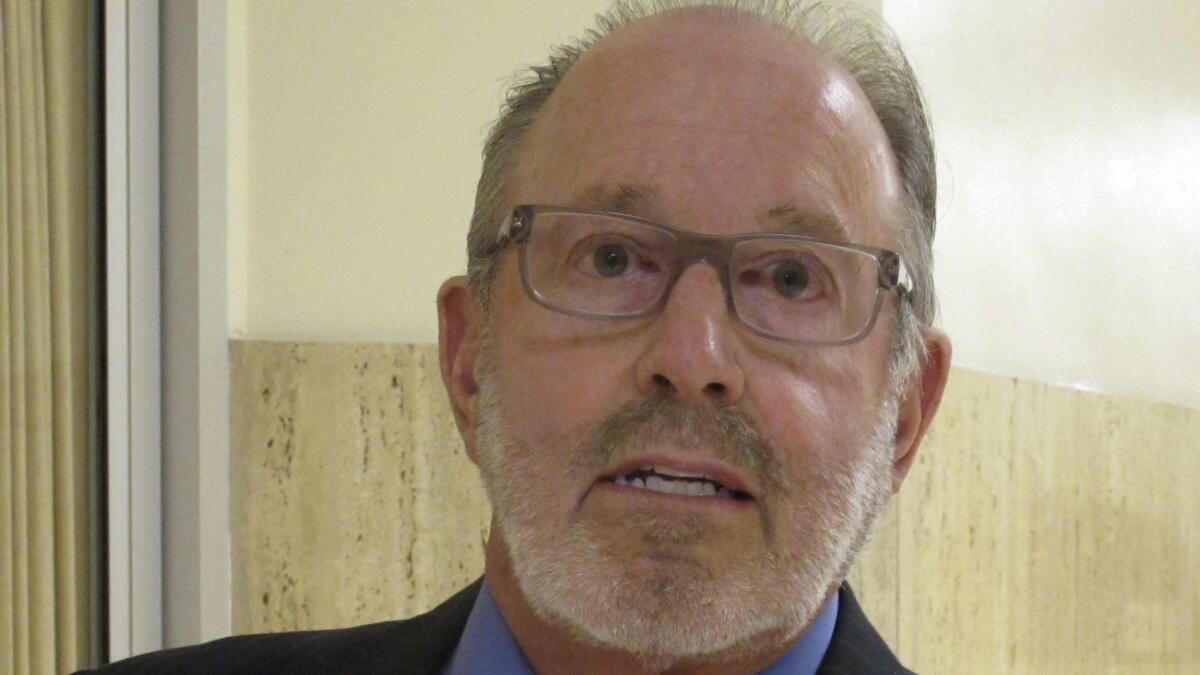Kansas Supreme Court reinforces abortion rights, blocks ban

- Share via
Kansas’ highest court ruled for the first time Friday that the state constitution protects abortion rights and blocked a first-in-the-nation ban on a common second-trimester method for ending pregnancies.
The state Supreme Court’s ruling represented a big victory for abortion rights supporters in a state with a Republican-controlled Legislature hostile to their cause. It comes with other GOP-controlled states moving to ban most abortions in direct challenges to the U.S. Supreme Court’s historic 1973 Roe v. Wade decision legalizing abortions across the nation.
The Kansas decision prevents the state from enforcing a 2015 law that could have greatly limited second-trimester abortions. But even worse for abortion opponents, the ruling clears the way for legal challenges to a string of abortion restrictions approved in recent years by state lawmakers under past Republican governors.
In a 6-1 ruling, the court said vague language protecting “equal and inalienable rights” in the first section of the Kansas Constitution’s Bill of Rights grants a “natural right of personal autonomy” that includes the right to “control one’s own body.” Because that right is independent of the U.S. Constitution, Kansas courts could strike down restrictions that have been upheld by the federal courts.
“This right allows a woman to make her own decisions regarding her body, health, family formation, and family life — decisions that can include whether to continue a pregnancy,” the court’s unsigned majority opinion said.
Justice Caleb Stegall, the only appointee of a conservative Republican governor, declared in his dissenting opinion that the ruling “fundamentally alters the structure of our government” to “arbitrarily grant a regulatory reprieve” for abortion.
The ruling immediately prompted abortion opponents to call for amending the state constitution. Democratic Gov. Laura Kelly, who took office in January, is a strong abortion-rights supporter but the Legislature still has solid anti-abortion majorities.
“The liberal, activist Supreme Court showed just how out of touch they are with Kansas values,” Senate President Susan Wagle, a conservative Wichita Republican, said in a statement issued minutes after the decision. “We understand that life is sacred, beginning at conception, and we must always stand and defend the most vulnerable among us, the unborn.”
In previous cases, Kansas’ highest court avoided the question, allowing U.S. Supreme Court decisions to determine what restrictions would be allowed. But a state district court judge ruled in issuing an injunction to block the 2015 law that the Kansas Constitution grants its own protections.
The Supreme Court sent the case back to the lower court for a trial on the lawsuit challenging the law but kept the judge’s injunction in place, saying the lawsuit was likely to succeed in invalidating the law.
The decision Friday comes two years after the Kansas court heard arguments from attorneys, an unusually long delay for a ruling. Iowa’s Supreme Court issued a similar decision in 2018.
The Kansas Bill of Rights says residents’ natural rights include “life, liberty and the pursuit of happiness” and that “free governments” were created for their “equal protection and benefit.”
The state’s attorneys argued there is no evidence that when the state constitution was written in 1859 its drafters contemplated abortion rights. In the Kansas Territory, abortion was illegal except to save a woman’s life and that policy carried over in the new state’s laws.
The Kansas law at issue would bar physicians from using forceps or similar instruments on a live fetus to remove it from the womb in pieces, using the non-medical term “dismemberment abortion” to describe the procedure. Such instruments are commonly used in a dilation and evacuation procedure, which the Center for Reproductive Rights has described as the safest and most common abortion procedure in the U.S. in the second trimester.
The Kansas law was model legislation drafted by the National Right to Life Committee. The group says similar bans have been enacted in 10 other states — Oklahoma, West Virginia, Mississippi, Alabama, Louisiana, Arkansas, Texas, Kentucky, Ohio and North Dakota.
Abortion providers reported performing 484 dilation and evacuation procedures in Kansas in 2018, according to state health department statistics. That was 6.9% of the state’s total abortions; most pregnancies were terminated during the first trimester.
The lawsuit against the Kansas law was filed by Drs. Herbert Hodes and Traci Nauser, a father and daughter who operated a women’s health center in the Kansas City suburb of Overland Park. Hodes has since retired.
After the district judge’s ruling put the law on hold, the Kansas Court of Appeals split 7-7, allowing the judge’s decision to stand.
More to Read
Sign up for Essential California
The most important California stories and recommendations in your inbox every morning.
You may occasionally receive promotional content from the Los Angeles Times.










